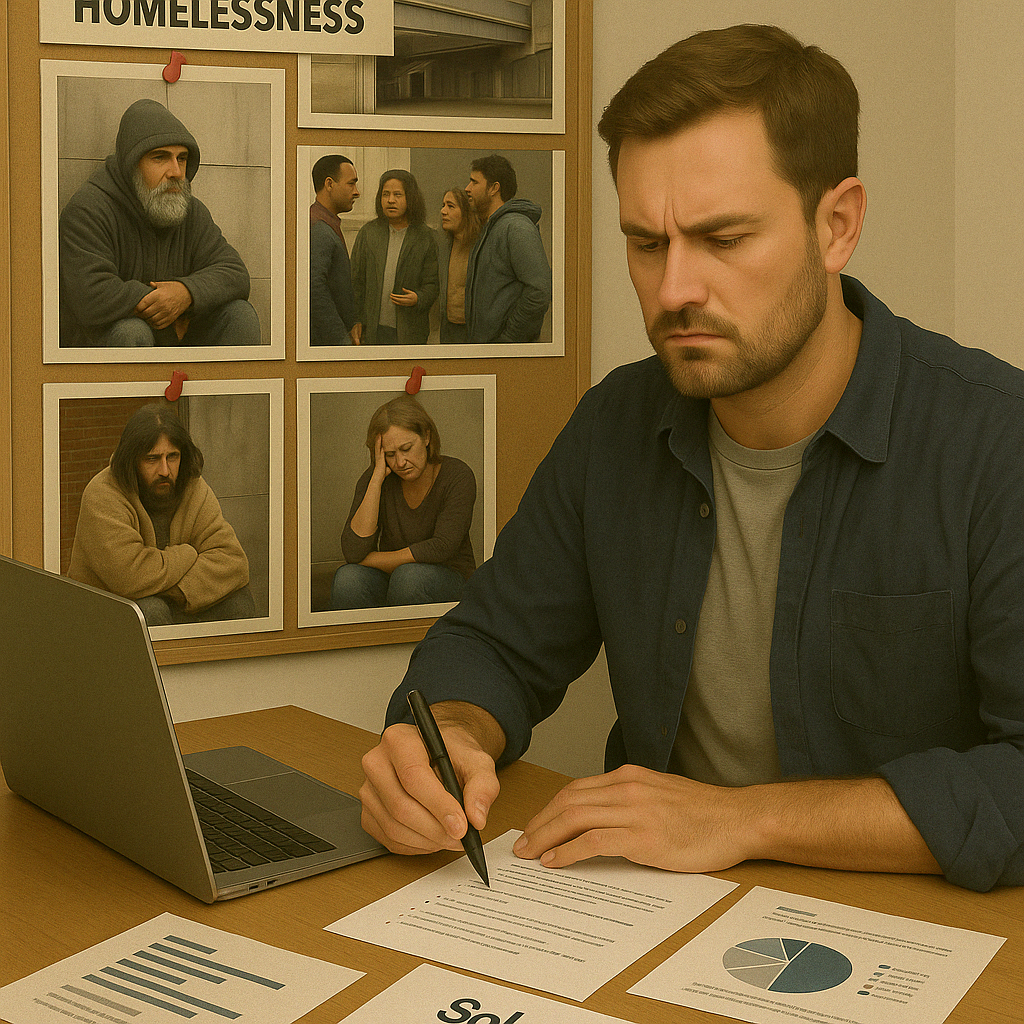Basic vs. Applied Research
A final distinction we want you to be able to make regarding scientific studies is identifying basic and applied research studies. This often comes down to trying to identify the goal of the inquiry. Is the goal to theorize about a way the world works? Is it to investigate the processes that create the behaviors and outcomes we witness? Or is to solve an immediate, practical problem through the application of knowledge or theory?
Basic research is aimed at more fundamental questions of how things work, why something happens, or who experiences certain things. Basic research is not often readily applicable to daily life; rather, it lays the foundation for more practical applications of science through testing and defining theories and giving other basic researchers and applied researcher building blocks of knowledge to work with.
Let’s Break it Down
Show
Basic Research

* This image was created using ChatGPT; however, the concept, design direction, and creative vision were conceived by Dr. Knight
Basic research is when scientists study something solely to gain a deeper understanding of how it works, not because they are trying to create a product or solve a specific problem immediately.
For example, a sociologist studies how people form friendships in different cultures. They’re not trying to fix a problem or design a program—they simply want to understand the social patterns and behaviors that influence human connection.
Dr. Christie Knight
That’s where applied research comes into play. Applied research happens when researchers have a specific, practical question they need answered or application they need to test. This often comes after basic research has uncovered some fundamental information that then gets translated to a practical application.
Let’s Break it Down
Show
Applied Research

* This image was created using ChatGPT; however, the concept, design direction, and creative vision were conceived by Dr. Knight
Applied research involves conducting studies to find practical solutions to real-world problems.
Instead of just learning for the sake of learning, they’re trying to fix something, make something better, or help people in some way.
For example, a sociologist studies how people form friendships in different cultures to help improve cross-cultural team-building programs in international workplaces. The goal is to use the findings to solve real-world problems, like reducing misunderstandings and enhancing collaboration among diverse groups.
Dr. Christie Knight
For an example of the differences, consider this question:
- Is there an association between divorcing parents’ conflict and their children’s behavior?
This is a good question, and one a lot of divorcing parents (and the people who help to care for or teach a divorcing couples’ children) are likely interested in. Knowing if (and, if so, how) conflict intensity or behaviors is associated with children’s behavior, especially behavioral problems, would help people who work with divorcing couples or children of divorce to understand what’s going on and why some children act the way they do. This is basic research at this stage, however. It’s seeking to understand a base point of knowledge: is there an association, and what does it look like?
Contrast that with this question:
- Does family counseling aimed at identifying healthy conflict resolution in divorcing parents reduce problematic behaviors in children of divorce?
This is an applied question; it has a specific, practical test of how the basic knowledge gained from the first question actually works in the real world. There’s likely a specific counseling protocol that those researchers are testing.
Both types of science are necessary, and sometimes the lines blur. The distinction is not based on usefulness or importance, so please don’t be thinking one type of research is better than the other! It all depends on the goal of a given investigation and the state of the evidence so far – an researcher can’t do much applied research until the basic foundations have been laid, but similarly, we can only do so much basic research before it’s time to apply it to a real situation to try and make a difference!
References
- National Council on Family Relations. (2025). About family science: The scientific study of families & close interpersonal relationships. National Council on Family Relations. https://www.ncfr.org/about/what-family-science
- Inuit Circumpolar Council Canada. (2025). Indigenous knowledge. ICC Activities. https://www.inuitcircumpolar.com/icc-activities/environment-sustainable-development/indigenous-knowledge/
- Luhrmann, T. M., Dulin, J., & Dzokoto, V. (2024). The shaman and schizophrenia, revisited. Culture, Medicine, & Psychiatry, 48, 442-469. https://doi.org/10.1007/s11013-023-09840-6
Media Attributions
- Basic Research

